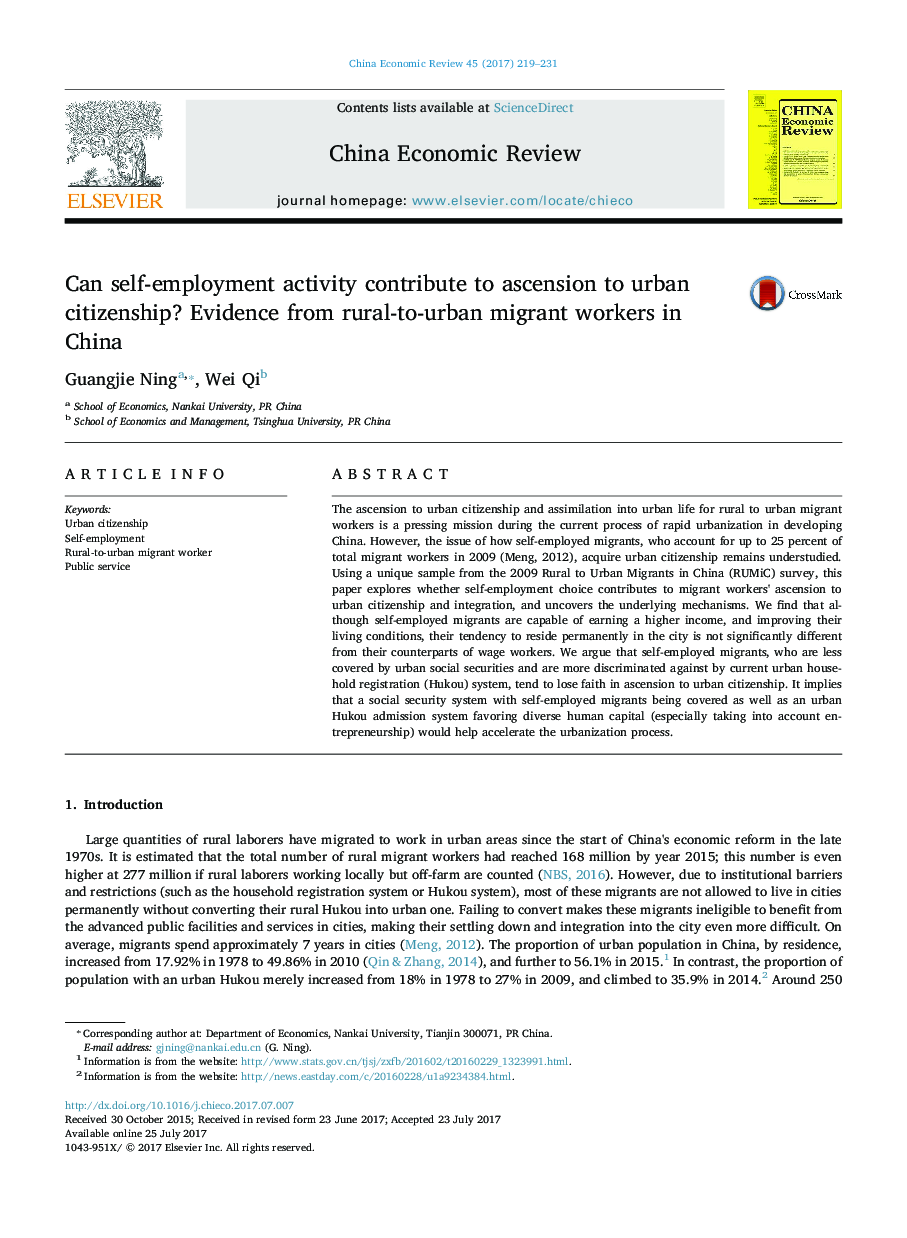| Article ID | Journal | Published Year | Pages | File Type |
|---|---|---|---|---|
| 5047226 | China Economic Review | 2017 | 13 Pages |
â¢We focus on the growing significance of self-employment activity as it relates to urbanization and obtaining urban citizenship.â¢Employing structural equation model (SEM), we explore the direct effect of self-employment on citizenship aspiration as well as indirect effects.â¢Policy that nourishes the venture environment and invests in entrepreneurship would help accelerate the process of urbanization.
The ascension to urban citizenship and assimilation into urban life for rural to urban migrant workers is a pressing mission during the current process of rapid urbanization in developing China. However, the issue of how self-employed migrants, who account for up to 25 percent of total migrant workers in 2009 (Meng, 2012), acquire urban citizenship remains understudied. Using a unique sample from the 2009 Rural to Urban Migrants in China (RUMiC) survey, this paper explores whether self-employment choice contributes to migrant workers' ascension to urban citizenship and integration, and uncovers the underlying mechanisms. We find that although self-employed migrants are capable of earning a higher income, and improving their living conditions, their tendency to reside permanently in the city is not significantly different from their counterparts of wage workers. We argue that self-employed migrants, who are less covered by urban social securities and are more discriminated against by current urban household registration (Hukou) system, tend to lose faith in ascension to urban citizenship. It implies that a social security system with self-employed migrants being covered as well as an urban Hukou admission system favoring diverse human capital (especially taking into account entrepreneurship) would help accelerate the urbanization process.
